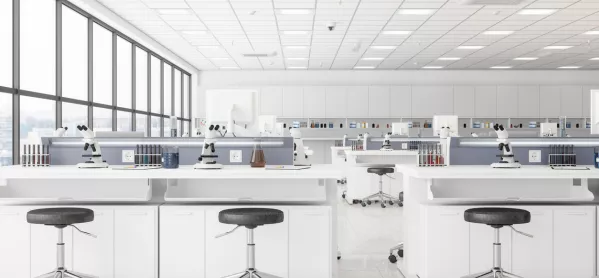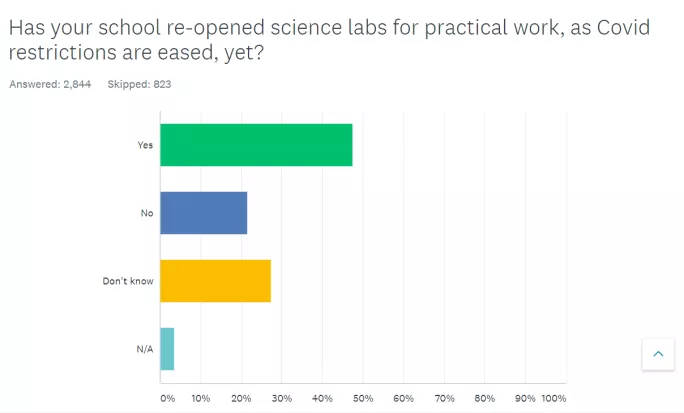Closed science labs at school will hit the science talent pipeline “for years to come”, the Royal Society of Chemistry has warned.
The warning comes as a Tes survey of GCSE and A-level teachers found that one in five schools (21.5 per cent) has not yet reopened their science labs for practical work as Covid restrictions are eased.
And a survey by the Royal Society of Chemistry found that trainee and first-year chemistry teachers feel unprepared to teach practical classes because they did not have the opportunity to do practicals during their teacher training owing to Covid restrictions.
Exclusive: Covid cost for new science teachers revealed
Comment: Could coronavirus change science education?
Survey: GCSE science grades will be hit by Covid, say teachers
Sarah Robertson, director of education and professional practice at RSC, told Tes: “With so many schools yet to reopen their practical facilities, we are facing issues that could impact the talent pipeline for many years to come.
“Ultimately, this might mean that fewer school students gain the necessary skills and inspiration to pursue scientific careers.”
“This will have a knock-on effect on the contribution to the economy that education in chemistry and the sciences make, and to solving future global problems.”
No Bunsen burners
According to the Tes survey, 21.5 per cent of schools have yet to reopen science labs. But 48 per cent of respondents to the survey said that the science lab at their school was open.
A total of 2844 teachers responded to the question: Has your school re-opened science labs for practical work, as Covid restrictions are eased, yet?
Some respondents explained how they had to follow strict procedures to keep their labs open during the pandemic.
A respondent said: “We didn’t shut them so practical work continued throughout. Equipment was quarantined for 72 hours.”
But many others commented that lab work had been limited in scope and only reserved for some year groups.
One respondent explained: “Limited number due to extra technician time required to prepare in Covid secure way and then quarantine equipment afterwards.”
Some commented that they had had to offer ‘demonstration only’ laboratory work.
One comment reads: “Teachers are doing the experiments not necessarily the students - apart from a level.”
Others pointed out that the type of work that could be carried out was impacted by Covid safety regulations. A common victim was the Bunsen burner.
A respondent said: “Limited... where teacher does not need to intervene if danger... no bunsen burners!”
And another added: “Wet chemistry only, no Bunsen burners due to use of flammable hand gel. Reduced number of practicals to allow equipment to be isolated for 72 hours.”





